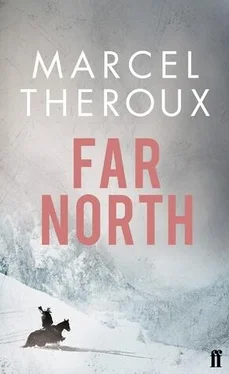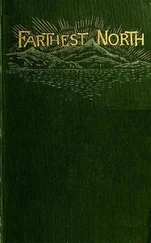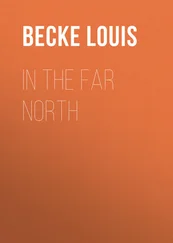The Reverend’s face hardened into a hatchet while I was speaking, and as soon as I had finished, he told the congregation that just as many of them had not yet made the acquaintance of Cousin Makepeace, neither had Cousin Makepeace had the opportunity to acquaint himself with the customs of Horeb, in particular that the service of god came above all other works. The appetite for sanctity surpassed mere carnal appetite.
If I’d been a little smarter, I would have stopped there. Everything was counselling me to bite my tongue, from the angry sparkle in Boathwaite’s eye to the dumbstruck faces of his congregation. But living alone for so long had made me stubborn.
I said I was sorry for bursting in so loud and unmannerly, and I would never have done it in the ordinary way. I didn’t mean that they should stop their praying or the Reverend should stop his preaching. But since I waso loud andquo;t much of a churchgoer myself, I’d be happy to make myself useful to them. And I said that even Jesus let the disciples gather ears of corn on the Sabbath. So how about it? Could I have one of my guns?
By now, I saw that I’d made myself as unwelcome as a juggler at a funeral. The Reverend hissed at me that there would be no further discussion until the service was over. Then he turned his back on me and prayed in a loud voice for ten minutes. Most of the congregation turned their faces with him, but one or two of the children stared at me and had to be cajoled into looking away again.
I was so angry I barely heard a word he said. My mind was fixed on the caribou, snuffling away through the forest. I was hungry myself, of course, but I also thought of those pale, skinny children in the chapel, with their streams of yellow snot and dirt-streaked faces, and how much better off they would be with a plate of meat than a belly full of fine words.
They grumbled away in their prayers and I stalked out, furious.
The Reverend didn’t speak to me for the next couple of days. I mean, he greeted me when he saw me, but very cool and offish, and most of the others in Horeb followed his lead. It didn’t bother me any. I had enough to do with nursing my horses, and when I wasn’t doing that, I liked to be outside. Still, I never saw any more caribou and that was a pity.
Every time Violet came back from the chapel in her headscarf — her mother was too feeble to leave their shack — I asked her what the Reverend preached on. Most of the time, he told them to keep close to Christ in these difficult moments, hold him like a match-flame in their hearts, and other such bunkum. But he also warned them of false prophets, and the dangers of a divided kingdom, in ways that made me certain he didn’t much like having a mutineer in his midst.
Partly I was flattered to give him a text for his sermons, but I hadn’t meant to offend him, and I think we were both glad when my horses took a turn for the better, and my thoughts began to shift to moving onwards.
I went to him in his quarters a few days before I was set to leave. It was evening, an hour or so after his last service. He was writing by lamplight. The room was comfortable, and there was a plate of food on the table beside him.
He put his pen down as I came in, and closed the book.
‘Nice digs you’ve got, Reverend,’ I said, meaning to be friendly.
‘My flock are happy to see me comfortable,’ he said, as if I’d meant to put his back up a little.
I told him I was getting ready to move on, and wanted to provision myself for the journey. None of that came as much of a surprise to him. Then I said that I needed my guns back so that I could hunt before I left, and that out of gratitude to the people of Horeb, I hoped he would let me share whatever I took with them.
The Reverend said there was a very strict ordinance on no weapons in the stockade, but he would hand over my guns when I rode out, on the understanding that I would put them back in his safekeeping when I returned.
I told him that would be fine with me.
Before I left, he asked me in a schoolmasterly way what had happened to my own impetus towards religion. As a child of waslers, I must have been brought up in the Church.
I said that speaking personally, I couldn’t find much in it. I said that religion made people soft with love, or think they were better than other people. I said I’d read the Bible cover to cover, and I thought it was a scam. It seemed obvious to me that the whole thing was cooked up by the Levites so the other tribes would feed them. That it was good stories, but that there was stables of horseshit in it: the Urim and the Thumim. That no one was bigger sinners than the kings of the Old Testament.
‘Interesting,’ he murmured. ‘Very interesting.’
I said I apologized if my speaking plainly gave him offence, but that he would find me a straight-dealing person, and I’d come to collect my guns in the morning.
As I turned to leave, he called me by my name.
‘Sometimes,’ he said, ‘our imperative is survival. We are much reduced. But this community coheres. You are the last of your whole city. Ask yourself, by what grace did this settlement survive, where yours and others collapsed?’
I said I had always had the utmost faith in the power of dumb luck.
‘Yes,’ he said, ‘Perhaps.’
But walking back to Violet’s shack in the twilight, I did think that maybe he had a point. Boathwaite had kept his little flock together somehow. And even if Moses and Mohammed were charlatans, maybe that was better than inflicting the naked truth on people: we are all out here in the desert, and we are alone, and all of us will die. Even if it’s true, maybe it’s not the kindest or most practical thing to tell anyone.
And lying in bed, listening to Violet’s mother again (‘I’m dying! I’m dying!’), I thought, am I angry with Boathwaite because I want to believe him so much, because I want to settle like a kitten in the crook of the Almighty’s arm, and surrender to His wisdom?
That night I had another of those weird dreams. This time it was about thousands of people on a quayside, embarking on a huge ship. For a while, there were hordes of us at the dock, waiting to go on, and then there were much fewer, and suddenly it seemed that almost everyone was on board, apart from myself and couple of stragglers, like some queer-looking animals that Noah had left behind, doomed, irrelevant, because we had arrived too late.
The Rev was as good as his word about the guns. He walked me outside the stockade and handed them over before his morning service. I told him I’d be back in a day or so, depending on the hunting.
We were never friendlier with each other than at the moment when we knew we’d be apart for a while. He was so pleased to be rid of me that he came over quite warm towards me. ‘I can continue to respect a man while differing with him,’ he said. ‘There’s a lot of good feeling towards you here, Makepeace.’
I thought he was referring to the gaggle of children who followed me around because I had got into the habit of giving food scraps to them, but he seemed to be talking about himself.
‘Surely you won’t miss me, Reverend?’ I said, as I heaved up into the saddle. He didp>
I AM ONE of those that need motion. Sometimes my body barks at me like a dog that wants walking. I was always that way. My father would say the devil had got into my legs the way they’d kick and fidget if I went to bed after an evening when I’d done nothing except sit and write homework. My mother said I was the same as a baby, always pedalling, and wriggling, and waving my arms. I think better when I’m moving.
If only they’d let me pace in the classroom, I could have taken in a heap of science and learning. But after twenty minutes in my seat, my knees would be hopping up and down, battering my desk, spilling ink, getting me into trouble.
Читать дальше












